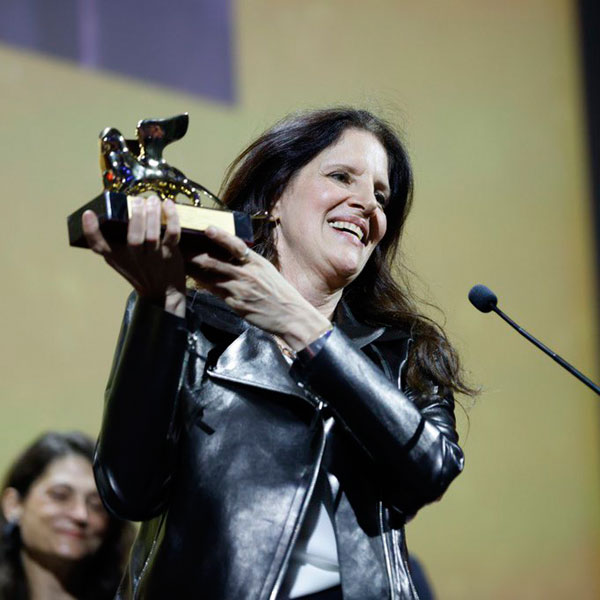
The 69th Festival in 2012 saw Alberto Barbera as the new artistic director alongside remarkable new initiatives: the launch of Biennale College - Cinema, a higher education training workshop for the development and production of micro-budget audio-visual works, and the establishment of the Venice Film Market in dedicated spaces at the Excelsior Hotel. As part of the renovation – in agreement with the City of Venice – of the existing facilities of the Festival, which included the restoration of the Sala Grande in 2011, a new, larger and more functional foyer in the Palazzo del Cinema was built to welcome the public. The intervention also included the renovation of two historic screening rooms, the Pasinetti and Zorzi, for an overall extension of 50 more seats.
The retrospective was titled «80!» on the occasion of the 80th anniversary of the Venice Film Festival (1932-2012) and presented unique copies of films thought to be lost but actually existing in the Biennale's ASAC archive collections. This was complemented by the Venice Classics section of restored classic films. The opening film was Mira Nair's The Reluctant Fundamentalist; the Golden Lion for Lifetime Achievement was given to Italian director Francesco Rosi, who received the award from Giuseppe Tornatore. The main jury chaired by Michael Mann awarded the Golden Lion to Pieta by Kim Ki-duk and the Silver Lion and the Coppa Volpi for best actor to The Master by Paul Thomas Anderson and the two actors Philip Seymour Hoffman and Joaquin Phoenix. Among the stars that were on the red carpet, Robert Redford (his first-time attendance on the Lido), Michael Cimino (Persol Award), Spike Lee (Jaeger-LeCoultre Glory to the Film-maker Award), Brian De Palma, Jonathan Demme, Kate Hudson, Liev Schreiber, Winona Ryder, Michael Shannon, Ray Liotta, Pierce Brosnan, Michael Fassbender, Isabelle Huppert, Claudia Cardinale, Noomi Rapace, Kristin Scott Thomas, Olga Kurylenko, Emmanuelle Seigner, Takeshi Kitano, Peter Brook, Liliana Cavani, Marco Bellocchio, Toni Servillo, Valerio Mastandrea, Barbora Bobulova and teen-idols such as Selena Gomez, Vanessa Hudgens, Zac Efron, James Franco, and Shia LaBeouf.
To celebrate its 70th edition, the Festival of 2013, directed by Alberto Barbera, created the special project, Venezia 70 - Future Reloaded: 70 directors from all around the world made a short film, lasting between 60 and 90 seconds, in total creative freedom. All these short films were given their world premiere at the Lido during the 70th Festival. The 2013 edition also presented the 3 feature films of the Biennale College – Cinema, an advanced workshop opened to young filmmakers from around the world for the production of micro-budget films, launched at the 2012 Festival. The 2nd edition of the Venice Film Market also proved to be a success, set up in dedicated spaces at the Hotel Excelsior, and involving 246 major distributors. As part of the redevelopment of the historic structures of the Festival – carried out jointly with the City of Venice – the Palazzo del Casinò had a new 150-seat room (Sala Casinò) and the Press Room was expanded and technologically improved.
Gravity, directed by Alfonso Cuarón and starring Sandra Bullock and George Clooney, was the opening film in 3D. The Golden Lion for Lifetime Achievement of the Biennale was awarded to American film director William Friedkin. The Jury of the Venice 70 competition, headed by Bernardo Bertolucci, awarded the Golden Lion to the film Sacro GRA by the Italian director Gianfranco Rosi. The Italian film master Ettore Scola received the Jaeger-LeCoultre Glory to the Filmmaker award. For the occasion his film was screened, Che strano chiamarsi Federico, a homage to Federico Fellini 20 years after his passing; present at the screening was the President of the Republic, Giorgio Napolitano. Among the other masters and stars on the Lido were Andrzej Wajda (Persol Award, awarded in the presence of Lech Walesa), Paul Schrader, Bret Easton Ellis, Mia Wasikowska, Nicolas Cage, Tye Sheridan, Jesse Eisenberg, Dakota Fanning, Judi Dench, Steve Coogan, James Franco, Scott Haze, Tom Welling, Daniel Radcliffe, Tom Hardy, Scarlett Johansson, Errol Morris, Terry Gilliam, Stephen Frears, Amos Gitai, Kim Ki-duk, Patrice Leconte, Pablo Larraín, Sion Sono, Edgar Reitz, Tsai Ming-liang, Wang Bing, Philippe Garrel, Anna Mouglalis, Louis Garrel, Rebecca Hall, Alan Rickman, Richard Madden, Carrie Fisher, Martina Gedeck, Virginie Ledoyen, Catalina Sandino Moreno, Jiang Wen, Ken Watanabe, Ryuichi Sakamoto, Gianni Amelio, Alba Rohrwacher, Antonio Albanese, Giuseppe Battiston, Anita Caprioli, Marco Paolini, and Carlo Verdone.
In 2014, following an agreement with the Venice City Council, the Sala Darsena theatre was completed renovated and enlarged from 1300 to 1409 seats: the inaugural event took place on 26 August for the Festival pre-opening dedicated to the anniversary of World War I, featuring the screening of Maciste alpino (1916) by Luigi Maggi and Luigi Romano Borgnetto (direction supervisor Giovanni Pastrone) in a new restored copy. Birdman by Alejandro González Iñárritu starring Michael Keaton was the opening film on 27 August. The Golden Lions for Lifetime Achievement were awarded to film editor Thelma Schoonmaker and to director Frederick Wiseman. The Venezia 71 jury, chaired by Alexandre Desplat, awarded the Golden Lion for Best Film to En duva satt på en gren och funderade på tillvaron (A Pigeon Sat On A Branch Reflecting On Existence) by Roy Andersson. The actor, director, screenwriter and producer James Franco was presented the Jaeger-LeCoultre Glory to the Filmmaker Award 2014. Actress Frances McDormand was presented the Persol Tribute to Visionary Talent Award 2014.
Stars on the red carpet included Al Pacino, Catherine Deneuve, Michel Piccoli, Charlotte Gainsbourg, Chiara Mastroianni , Edward Norton, Emma Stone, Andrew Garfield, Ethan Hawke, Viggo Mortensen, Michael Shannon, Abel Ferrara, Willem Dafoe, Owen Wilson, Andrea Riseborough , Stellan Skarsgård, Tahar Rahim, Maria De Medeiros, Anna Mouglalis, Elio Germano, Riccardo Scamarcio, Luca Zingaretti, Milla Jovovich, Ryô Kase, Anton Yelchin, Ashley Greene, Alexandra Daddario, Shinya Tsukamoto, Wang Xiaoshuai, Amos Gitai, Peter Bogdanovich, Peter Ho-Sun Chan, Ann Hui, Im Kwontaek, Barry Levinson, Hong Sangsoo, Fatih Akin, David Gordon Green, Andrew Niccol, Benoît Jacquot, Xavier Beauvois, Ulrich Seidl, Aléx de la Iglesia, Ami Canaan Mann, and Michael Almereyda. Three feature films in the Biennale College – Cinema section were presented: H. by Rania Attieh and Daniel Garcia, Blood Cells by Luke Seomore and Joseph Bull, and Short Skin by Duccio Chiarini. The 3rd edition of the Venice Film Market took place in dedicated spaces at the Excelsior Hotel.
The 72nd Venice Film Festival opened on 2 September 2015 featuring Everest by Icelandic director Baltasar Kormákur. During 11 days of programming, the Festival honoured Jonathan Demme (Persol Tribute to Visionary Talent Award), Bertrand Tavernier (Golden Lion for Lifetime Achievement) and Brian De Palma (Jaeger-LeCoultre Glory to the Filmmaker Award); a tribute was also paid to Arturo Ripstein to celebrate his fifty-year career. The project Biennale College - Cinema for the production of micro-budget feature films presented its third edition: the three films screened were Baby Bump by Kuba Czekaj (Poland), Blanka by Kohki Hasei (Japan), and The Fits by Anna Rose Holmer (USA). The Cinema in the Garden was the new section in the line-up that included films, talks and visions at the Casino garden. The international jury of the section Venezia 72 was chaired by Alfonso Cuarón: after viewing the 21 films running for the competition, the jury awarded the Golden Lion to Desde allá (From Afar) by Venezuelan director Lorenzo Vigas, at his first feature-length film. The Orizzonti jury, chaired by Jonathan Demme, awarded the main prize to Free In Deed by Jake Mahaffy, the director’s second feature.
Stars on the red carpet included: Jake Gyllenhaal, Mark Ruffalo, Stanley Tucci, Johnny Depp, Dakota Johnson, Juliette Binoche, Eddie Redmayne, Amber Heard, Kristen Stewart, Nicholas Hoult, Stacy Martin, Tilda Swinton, Ralph Fiennes, Shia LaBeouf, Jennifer Jason Leigh, Alba Rohrwacher, Laurie Anderson, Bruno Ganz, Valeria Golino, and Italian rock star Vasco Rossi.
The 73rd Venice Film Festival presented two important new features in 2016: the new market called Venice Production Bridge and the enhancement of the Cinema nel Giardino section; the VPB focused in particular on the presentation and exchange of original projects for films and works in progress, so as to foster their development and production; a brand new 446-seat screening theatre was made for the Cinema nel Giardino: screenings were preceded or followed by encounters and discussions with directors, stars and personalities in the fields of art and culture. Moreover, the VR Theatre was a new space used from 1-4 Sept. to present selected scenes from the first ever feature-length movie in Virtual Reality (Jesus VR – The Story of Christ) alongside a selection of previous “VR films”.
The Festival kicked off on 31 August featuring the musical La La Land by Damien Chazelle: the film was to win 7 Golden Globes and 14 Oscar nominations. Two Golden Lions for Lifetime Achievement were awarded to Jerzy Skolimowski and Jean-Paul Belmondo. The Biennale College – Cinema section presented four features produced and realised in the context of the Festival: Orecchie - Ears by Alessandro Aronadio, Mukti Bhawan – Hotel Salvation by Shubhashish Bhutiani, Una hermana by Sofia Brockenshire and Verena Kuri, and La Soledad by Jorge Thielen Armand. The Jury of the Venezia 73 competition, chaired by Sam Mendes, awarded the Golden Lion to Ang babaeng humayo (The Woman Who Left) by Lav Diaz; Silver Lion to Nocturnal Animals by Tom Ford.
Stars on the red carpet included: Emma Stone, Michael Fassbender, Alicia Vikander, Jeremy Renner, Amy Adams, Jake Gyllenhaal, Liev Schreiber, Naomi Watts, James Franco, Dakota Fanning, Silvio Orlando, Jude Law, Emmanuelle Seigner, Andrew Garfield, Cristiana Capotondi, Natalie Portman, Filippo Timi, Margherita Buy, Monica Bellucci, and Denzel Washington.
In 2017 the Festival ran from 30 August to 9 September, screening Alexander Payne’s Downsizing as the opening film. The section Venice Virtual Reality was significantly improved by launching a new competition dedicated to works in virtual reality, whose Jury was chaired by John Landis. The Venice Virtual Reality took place in the small island of the Lazzaretto Vecchio, with stand ups, installations and the VR Theater available for accredited visitors.
The Jury of the main competition was chaired by Annette Bening, and the Golden Lion for Best Film went to The Shape of Water by Guillermo del Toro. The Orizzonti jury was chaired by Gianni Amelio, the winner film of this section was Nico by Susanna Nicchiarelli. Other major awards included the two Golden Lions for Lifetime Achievement presented to Jane Fonda and Robert Redford, and the Jaeger-LeCoultre Glory to the Filmmaker Award presented to Stephen Frears. The fifth edition of the Biennale College Cinema screened three feature films: Strange Colours by Alena Lodkina, Martyr by Mazen Khaled, and Beautiful Things by Giorgio Ferrero.
Stars on the red carpet on the Lido included Javier Bardem, Jennifer Lawrence, Michelle Pfeiffer, George Clooney, Matt Damon, Julianne Moore, Sally Hawkins, Chloë Sevigny, Hafsia Herzi, Frances McDormand, Woody Harrelson, Charlotte Rampling, Ethan Hawke, Amanda Seyfried, Sam Neill, Judi Dench, Helen Mirren, Donald Sutherland, Takeshi Kitano, and Penélope Cruz.
In 2018 the Venice Film Festival celebrated its 75th edition with two important publications: Happy 75°, entrusted to film historian Peter Cowie with the task to outlining a history of the Festival. Using archive materials, the English journalist developed in seven chapters, featuring photographs, an introduction to the events of the Festival, retracing transformations, setbacks and rebirths, year after year, from 1932 up to the present day. Also published the catalogue of the exhibition, Il Cinema in Mostra – Volti e immagini dalla Mostra Internazionale d'Arte Cinematografica 1932-2018, set up in the historic Hotel des Bains at Venice Lido which was reopened to the public for the occasion. The catalogue is a story by images, a collection of posters, film frames, and vintage photographs that immortalise the stars, the public and the iconic places of the Festival.
The 75th Festival ran 29th August to 8th September, featuring Damien Chazelle’s First Man as the opening film; the same day the Golden Lion for Lifetime Achievement was presented to Vanessa Redgrave; the second Golden Lion for Lifetime Achievement was presented to David Cronenberg on 6th September. Honours went also to Bob Murawski (Premio Campari Passion for Film) and Zhang Yimou (Jaeger-LeCoultre Glory to the Filmmaker Award). The Golden Lion for Best Film went to Roma by Alfonso Cuarón, and the Orizzonti Award for Best Film to Kraben Rahu (Manta Ray) by Thai director Phuttiphong Aroonpheng. The 75th edition also featured the Venice Virtual Reality section at the Lazzaretto Vecchio island, the three Biennale College Cinema feature films, and the market activities of the Venice Production Bridge.
Stars on the red carpet included: Ryan Gosling, Jason Clarke, Joel and Ethan Coen, John C. Reilly, Jeff Goldblum, Emma Stone, Olivia Colman, Bradley Cooper, Lady Gaga, Dakota Johnson, Tilda Swinton, Thom Yorke, Willem Dafoe, Natalie Portman, Stacy Martin, Louis Garrel, Alessandro Borghi, Alessandro Gassmann, Micaela Ramazzotti, and Jasmine Trinca.
The 76th Venice Film Festival ran from 28 August to 7 September 2019: the first Golden Lion for Lifetime Achievement was presented to Pedro Almodóvar at the beginning of the festival. Further awards included the Jaeger-LeCoultre Glory to the Filmmaker Award to director Costa-Gavras and the Campari Passion for Film Award to cinematographer Luca Bigazzi; the second Golden Lion for Lifetime Achievement was presented to Julie Andrews. The festival as usual included the two main competitive sections, Venezia 76 and Orizzonti, and the three micro-budget feature-length films realised as part of the Biennale College Cinema; also from the College three short audio-visual works presented in the VR section, that was held as usual in the Lazzaretto Vecchio island featuring a line-up of 40 works made in Virtual Reality. A Special Event at the crossroads between cinema and visual arts took place on 3 September at the Teatro alle Tese in the Arsenale: director Tsai-Ming liang presented the restored version of Bu san (Goodbye Dragon Inn), a film that screened at the Venice Film Festival in 2003; this was followed by a live performance with Tsai titled Improvisations on the Memory of Cinema. The international jury was presided over by Argentinian director Lucrecia Martel. Joker by Todd Phillips won the Golden Lion for best film.
Among the stars on the red carpet were Catherine Deneuve, Juliette Binoche, Scarlett Johansson, Adam Driver, Laura Dern, Brad Pitt, Liv Tyler, Kristen Stewart, Louis Garrel, Gael García Bernal, Joaquin Phoenix, Penélope Cruz, Jude Law, John Malkovich, Meryl Streep, Gary Oldman, Timothée Chalamet, Lily-Rose Depp, Julian Sands, Gong Li, Roger Waters, Johnny Depp, Donald Sutherland, and Mick Jagger.
In 2020 the 77th Venice Film Festival took place as planned, in spite of the global pandemic outbreak. The Festival opened on 2 September: seven artistic directors of the principal European film festivals attended the opening night in representation of the community of film festivals, intending to reassert the importance of the art of cinema as a sign of solidarity towards the global film industry which was hit hard by the pandemic, and their colleagues forced to cancel or postpone their festivals. The evening ended with the Golden Lion for Lifetime Achievement to Tilda Swinton award ceremony.
This edition included four main sections that went live on the Lido: the two competitive sections, Venezia 77 and Orizzonti, the Out of Competition and Biennale College Cinema sections; the virtual reality section took place online, rebranded as Venice VR Expanded; the Venice Classics section was hosted as part of the programme of the festival Il Cinema Ritrovato, promoted by the Cineteca di Bologna, which took place from August 25 to 31 in Bologna.
This year’s awardees also included Abel Ferrara, who was presented the Jaeger-LeCoultre Glory to the Filmmaker Award, and Terence Blanchard, the recipient of the Campari Passion for Film Award. On 8 September the second Golden Lion for Lifetime Achievement was presented to director Ann Hui.
The Venezia 77 international jury was chaired by Cate Blanchett: Nomadland by Chloé Zhao won the Golden Lion for best film.
Celebrities on the Lido included Pedro Almodóvar, Stacy Martin, Benoît Magimel, Pierfrancesco Favino, Vanessa Kirby, Adèle Exarchopoulos, Christopher Abbott, Donatella Finocchiaro, Miguel Ángel Silvestre, Stefano Accorsi, Valeria Golino, and Maya Sansa.
Despite the challenges posed by the global pandemic, the Festival took place in 2021 as planned from 1-11 September. The opening night featured the Golden Lion for Lifetime Achievement to Roberto Benigni and the screening of the new film Madres paralelas by the 2019 recipient of the Golden Lion for Lifetime Achievement, Pedro Almodóvar. This edition introduced a new non-competitive section, Orizzonti Extra, that screened eight features voted by viewers for the new Audience Award. The line-up included as usual the sections Venezia 78 Competition, Out of Competition, Orizzonti Competition, and Biennale College Cinema; Venice VR Expanded presented audio-visual works that were experienced by the public at Lido, online, and in the Satellite Venues hosted by 14 cultural organisations in 10 countries.
This edition awarded Marcus Rowland (Campari Passion for Film), Ridley Scott (Cartier Glory to the Filmmaker Award), and the second Golden Lion for Lifetime Achievement to Jamie Lee Curtis. The international jury was chaired by South Korean director Bong Joon-ho: the Golden Lion for Best Film was awarded to Audrey Diwan’s L’événement.
Among the stars who attended the 2021 edition: Penélope Cruz, Benedict Cumberbatch, Isabelle Huppert, Kirsten Dunst, Kristen Stewart, Timothée Chalamet, Zendaya, Javier Bardem, Dakota Johnson, Alba Rohrwacher, Toni Servillo, Jimmy Page, Jessica Chastain, Antonio Banderas, Silvio Orlando, Tim Roth, Charlotte Gainsbourg, Cécile de France, Kate Hudson, Valeria Golino, Jasmine Trinca, Claudio Santamaria, Elio Germano, Vincent Lindon, Matt Damon, and Ben Affleck.
The 79th Festival took place from 31 August to 10 September 2022: on the opening night, Catherine Deneuve was awarded the Golden Lion for Lifetime Achievement. The second Golden Lion for Lifetime Achievement was presented to Paul Schrader on 3 September. After the two-year pandemic, the Festival resumed several of its normal features: the eagerly awaited red carpet was visible again for fans and the public; the full seating capacity was available in all screening theatres; and the virtual reality Venice Immersive section returned to the Lazzaretto Vecchio island. The Academy of Motion Picture Arts and Sciences, represented by the new CEO Bill Kramer, attended the Venice Film Festival for the first time.
In 2022 the Festival celebrated its 90th anniversary, as the first edition was held in 1932: an exhibition on that historic event was inaugurated at Ca’ Giustinian on 8 July, featuring the posters and documents of the Biennale’s Archive. A remarkable book by Gian Piero Brunetta was published on the 90-year history of the Festival; and a book on the 10-year activities of the Biennale College Cinema, the project that produced 83 new audiovisual works from 48 countries.
The international Jury chaired by Julianne Moore awarded the Golden Lion for best film to All the Beauty and the Bloodshed by Laura Poitras.
The stars who walked on the carpet on the Lido included Catherine Deneuve, Adam Driver, Cate Blanchett, Timothée Chalamet, Sigourney Weaver, Brendar Fraser, Sadie Sink, Penélope Cruz, Harry Styles, Colin Farrell, Tilda Swinton, Luigi Lo Cascio, Elio Germano, Christoph Waltz, Willem Dafoe, Kayije Kagame, Casey Affleck, Hugh Jackman, Laura Dern, Vanessa Kirby, Ana de Armas, Adrien Brody, Claudia Pandolfi, Silvio Orlando, Valerio Mastandrea, and Monica Bellucci.
The 80th Venice Film Festival ran from 30 August to 9 September 2023. The Golden Lions for Lifetime Achievement of this edition were director Liliana Cavani and actor Tony Leung Chiu-wai. The jury of the Venezia 80 main competition was chaired by Damien Chazelle (who opened the Festival in 2016 with La La Land and in 2018 with First Man); at the end of 11 days of screenings, Poor Things by Yorgos Lanthimos won the Golden Lion for best film.
Other initiatives of the Cinema department included the fourth edition of the Classici fuori Mostra series, that ran from 2 March to 17 May in Venice featuring 10 film classics restored by major international film libraries.
Due to the 2023 Screen Actors Guild strike (from July 14 to November 9), many stars could not make it to the Lido; however those who walked on the red carpet included Pierfrancesco Favino, Vincent Lindon, Amanda Collin, Adam Driver, Patrick Dempsey, Fanny Ardant, Olivia Ross, Caleb Landry Jones, Lou de Laâge, Mads Mikkelsen, Cailee Spaeny, Jessica Chastain, Alfredo Castro, Peter Sarsgaard, Alba Rohrwacher, Silvia D’Amico, Jacob Elordi, Guillaume Canet, Anaïs Demoustier, and Alice Isaaz.
In 2024 the Festival took place from 28 August to 7 September, opened by Tim Burton’s eagerly awaited Beetlejuice Beetlejuice, screening out of competition. The two Golden Lions for Lifetime Achievement were presented to Sigourney Weaver and Peter Weir.
The Jury of the Venezia 81 Competition was chaired by Isabelle Huppert. After the screening of the films belonging to the main competition, Pedro Almodóvar’s The Room Next Door was awarded the Golden Lion for Best Film.
From 14 February to 15 May the fifth edition of the Classici fuori Mostra series took place: this is a series of film classics restored by major film libraries and screening in Venice especially for an audience of university students. During the Venice Film Festival, masterclasses and talks ran in the new Match Point Arena on the Lido, attended by Sigourney Weaver, Peter Weir, and Ethan Hawke among others.
The red carpet of this edition was full of stars including Michael Keaton, Willem Dafoe, Winona Ryder, Monica Bellucci, Laura Morante, Kevin Kline, Cate Blanchett, Angelina Jolie, Nicole Kidman, Pierfrancesco Favino, Antonio Banderas, Fernanda Torres, Alessandro Borghi, Jude Law, Adrien Brody, George Clooney, Brad Pitt, Julianne Moore, Tilda Swinton, Daniel Craig, Joaquin Phoenix, Lady Gaga, Elio Germano, Barbora Bobul’ová, Chiara Caselli, and Isabelle Fuhrman.
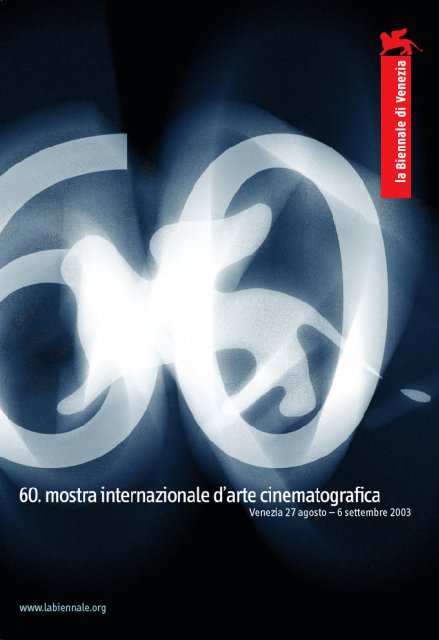
In 1999, the Sala Perla alongside the historic Palazzo del Cinema was restructured and expanded (seating for 580), seating in the PalaBNL was increased to 1700, and the Palazzo del Casinò cinemas reserved for journalists and professionals from the world of cinema were enlarged, to an overall surface area of 11,000 sq.m.
Alberto Barbera, director of the Festival from 1999 to 2001, created the section "Cinema del Presente" in parallel to the customary competition. He embarked on a double course of action. In addition to the Golden Lion we had the Lion of the Year aimed to highlight debut films and fringe feature films, as well as works comparable to genres and current productions, with innovative intentions and creative originality. All of the Golden Lions assigned during Barbera's concluding period went to films from the East: Not One Less by Zhang Yimou, The Circle by Jafar Panahi, and Monsoon Wedding by Mira Nair.
The 2002 and 2003 editions were directed by Moritz de Hadeln. In 2002, Peter Mullan's The Magdalene Sisters won the Golden Lion; the collective film 11'09''01 - September 11 also raised much attention and debate. In 2003, Woody Allen landed on the Lido to open the fest with his Anything Else, and many other stars followed by, including George Clooney and Catherine Zeta-Jones (Intolerable Cruelty), Sean Penn and Naomi Watts (21 Grams), Anthony Hopkins (The Human Stain), Salma Hayek and Johnny Depp (Once upon a time in Mexico), Bill Murray (Lost in Translation), Tim Robbins (Code 46), and Nicolas Cage (Matchstick Men). Andrej Zvjagintsev's Vozvrašcenje (The Return) won the Golden Lion.
In 2004, Marco Müller was appointed as director of the Cinema section. The festival awarded Manoel de Oliveira and Stanley Donen with the Golden Lion for Career Achievement. Mike Leigh's Vera Drake won the Golden Lion for best film. A retrospective section was dedicated to the Secret History of Italian Cinema, whose first segment Italian Kings of the B's was also presented in Tokyo, Milan, and London.
In 2005, Müller brought to the Lido a number of celebrities including Tsui Hark, George Clooney, Steven Soderbergh, Ang Lee, Jeremy Irons, Monica Bellucci, Susan Sarandon, Russell Crowe, Renée Zellweger, Ron Howard, Isabelle Huppert, Anthony Hopkins, Abel Ferrara, Stefania Rocca, John Turturro, Charlotte Rampling, Tim Burton, Emmanuelle Seigner, Ralph Fiennes, and Valeria Golino among others. The retrospective section was dedicated to the Secret History of Asian Cinema, Hayao Miyazaki and Stefania Sandrelli were awarded with the Golden Lion for Career Achievement, and Ang Lee's Brokeback Mountain won the Golden Lion for best film.
Stars who walked down the red carpet in 2006 included: Ben Affleck, Sabine Azema, Juliette Binoche, Kenneth Branagh, Adrien Brody, Sandra Bullock, Jackie Chan, Laura Dern, Aaron Eckhart, Emilio Estevez, Charlotte Gainsbourg, Josh Hartnett, Anne Hathaway, Ethan Hawke, Bob Hoskins, Jeremy Irons, Scarlett Johansson, Mia Kirshner, Diane Lane, Lindsay Lohan, Helen Mirren, Clive Owen, Catalina Sandino Moreno, Christian Slater, Meryl Streep, Stanley Tucci, Rachel Weisz, James Wilby, Lambert Wilson, and Zhang Ziyi. Retrospective sections were dedicated to the Secret History of Russian Cinema and to Joaquim Pedro de Andrade. David Lynch was awarded the Golden Lion for Lifetime Achievement, and Jia Zhangke's Still Life won the Golden Lion for Best Film.
In 2007, the Venice Film Festival celebrated its 75th anniversary. Director Alexander Kluge, who was also born in 1932 and the winner in Venice of two Golden Lions and one Silver Lion, prepared a special retrospective program on the last 75 years in the history of cinema. A special award was created, the Golden Lion of the 75th edition, and presented to Bernardo Bertolucci. The other main awards went to Tim Burton, the Golden Lion for Lifetime Achievement, and to Ang Lee, who won the Golden Lion for best film (Lust, Caution) for the second time in the three latest editions. The retrospective section was dedicated to Spaghetti Western and presented 40 famous film belonging to that genre. The red carpet of this edition was scattered with stars such as Keira Knightley, James McAvoy, Adrien Brody, Jude Law, Brad Pitt, George Clooney, Tilda Swinton, Susan Sarandon, Richard Gere, Fanny Ardant, Nikita Mikhalkov, Colin Farrell, Ewan McGregor, Takeshi Kitano, Rutger Hauer, Daryl Hannah, and Charlize Theron, just to name the main protagonists.
In 2008, the 65th edition, headed by Marco Müller, presented Ermanno Olmi the Golden Lion for Lifetime Achievement. The These Phantoms: Italian Cinema Rediscovered (1946-1975) retrospective was curated by Tatti Sanguineti and Sergio Toffetti and comprised the screening of about 30 films made during the three finest decades of Italian cinema. Lots of stars, as usual, during the 11 days of the festival: among them, Mickey Rourke, Charlize Theron, Silvio Orlando, Francesca Neri, Isabella Ferrari, Anne Hathaway, Valerio Mastandrea, Stefania Sandrelli, George Clooney, and Brad Pitt. The Venezia 65 international jury, chaired by Wim Wenders, awarded the Golden Lion for Best Film to The Wrestler by Darren Aronofsky.
In 2009 the Festival awarded John Lasseter and the Disney•Pixar directors the Golden Lion for Lifetime Achievement. The retrospective on Italian cinema continued with These Phantoms: Italian Cinema found again (1946-1975), curated by Sergio Toffetti. Director Marco Müller added the Controcampo Italiano section to the official selection, the new section being intended towards focusing on trends of Italian contemporary cinema. The Venezia 66 international jury, chaired by Ang Lee, awarded the Golden Lion for Best Film to Lebanon by Samuel Maoz. Among the stars who attended the Festival were Colin Firth, Tom Ford, Julianne Moore, George Clooney, Tilda Swinton, Giuseppe Tornatore, Sergio Castellitto, Eva Mendes, Nicolas Cage, Werner Herzog, Michael Moore, Riccardo Scamarcio, Diane Kruger, Isabelle Huppert, Viggo Mortensen, Jacques Rivette, and Jane Birkin.
In 2010, the Festival opened with Darren Aronofsky's Black Swan; the opening screening was attended by President Giorgio Napolitano. Ten years after the death of Vittorio Gassman, the Festival honoured one of the most extraordinary personalities of Italian cinema with the screening of Vittorio racconta Gassman, una vita da Mattatore, a documentary based on footage of the actor speaking about his career. The jury of the 67th Venice Film Festival awarded the Golden Lion for Best Film in Competition to Somewhere, directed by Sofia Coppola. The Golden Lion for Lifetime Achievement went to legendary Hong Kong movie director John Woo. Among the stars appearing on the red carpet were Natalie Portman, Vincent Cassel, Jessica Alba, Elle Fanning, Stephen Dorff, Ben Affleck, Jon Hamm, Rebecca Hall, Vincent Gallo, Willem Dafoe, Catherine Deneuve, Helen Mirren, Paul Giamatti, Rosamund Pike, John Turturro, Monte Hellman, Takashi Miike, Marco Bellocchio, Alessandro Gassman, and Kim Rossi Stuart. The 2010 edition saw the Orizzonti section thrown open to a vast range of productions. Even more so than in previous years, Orizzonti became the reference section for the more innovative and experimental filmmakers. The retrospective section was dedicated to Italian comedies and was titled La situazione comica (1937-1988).
In 2011, through an agreement with the City of Venice a radical renovation restored the historic Sala Grande (1937) to its original style. The whole walkway leading from the Hotel Excelsior to the Casino Palace was refurbished. The Lion's Bar was completely redeveloped focusing on quality design also for the adjacent areas. The festival opened with the American film The Ides of March, directed by George Clooney. Italian filmmaker Marco Bellocchio, among the most influential directors in the Italian filmmaking industry and one of the undisputed masters of contemporary cinema, was awarded the Golden Lion for Lifetime Achievement. American actor and film director Al Pacino was presented with the 2011 Jaeger-LeCoultre Glory to the Film-maker Award. Out of Competition, Al Pacino also presented the world premiere of his film Wilde Salome. The Persol 3D award went to the Zapruder Filmmakers Group, which, for many years, had been exploring the possibilities of stereoscopic film for the production of films and installations that borrow the techniques of 3-D cinema. The L’Oréal Paris cinema award went to Nicole Grimaudo.
Jury members Eija-Liisa Ahtila, David Byrne, Todd Haynes, Mario Martone, Alba Rohrwacher, André Téchiné, and jury president Darren Aronofsky awarded the Golden Lion to Faust by Russian director Aleksander Sokurov. Among the stars appearing on the Lido red carpet in 2011, in addition to George Clooney and Al Pacino, were Philip Seymour Hoffman, Paul Giamatti, Evan Rachel Wood, Kate Winslet, Christoph Waltz, Madonna, Abbie Cornish, Keira Knightley, Viggo Mortensen, Michael Fassbender, Monica Bellucci, Louis Garrel, Gwyneth Paltrow, Matt Damon, Laurence Fishburne, James Franco, Jessica Chastain, Gary Oldman, Colin Firth, Benedict Cumberbatch, Willem Dafoe, Emile Hirsch, David Cronenberg, Steven Soderbergh, Abel Ferrara, Johnnie To, and William Friedkin. The retrospective section was titled Orizzonti 1961-1978 and was dedicated to Italian avant-garde films of the 1960s-70s.
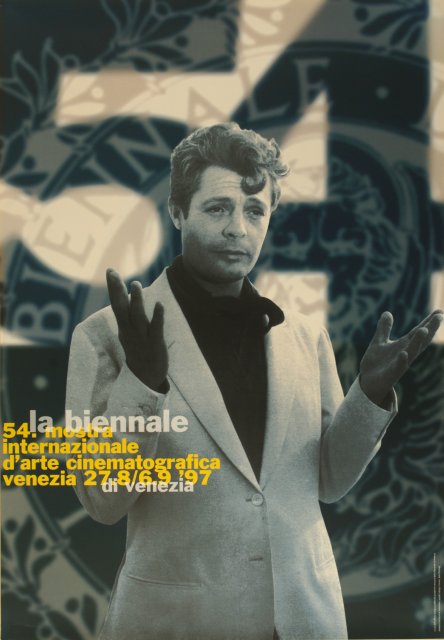
In 1990 the jury headed by Gore Vidal assigned the Golden Lion to Tom Stoppard's Rosencrantz and Guildenstern Are Dead, in preference to the visionary emerging talent of Jane Campion. This controversial decision kindled heated debate between the public and experts, with shades of the '50s when the juries apparently ignored Visconti's films. An Angel at My Table only received the Jury Grand Prix. Likewise the great surprise of the following year, Raise the Red Lantern by Chinese director Zhang Yimou, did not succeed in winning the Golden Lion (it went instead to Michalkov's Urga), however the last Festival directed by Biraghi was distinguished by a broad variety in selection, and the inclusion of young American talent such as Spike Lee and Gus Van Sant.
Filmmaker Gillo Pontecorvo (nominated Curator in 1992 then appointed Director until 1996), the director of La battaglia di Algeri, took up office with three decrees: make Venice the capital of quality filmmaking, bring the great directors and film stars back to the Lido, and revitalise the Palazzo del Cinema zone with young people. Pontecorvo succeeded in his intentions through a remarkable series of events and initiatives. During the years of his mandate Venice hosted the "Auteurs' Assise" (1993), numerous seminars were held and the U.M.A.C. (World Union of Auteurs) was founded. The spectacular films from the Notte section brought "stars" from the US firmament to the Lido - Jack Nicholson, Harrison Ford, Bruce Willis, Kevin Costner, Mel Gibson, Nicole Kidman, Tom Hanks, Denzel Washington, with Golden Lions for Career Achievement to Dustin Hoffman, Al Pacino, Robert De Niro, and Francis Coppola; at the 1992 Festival, the Golden Lion was awarded to a comedian, Paolo Villaggio. The Lido was re-animated during the Pontecorvo years with rock concerts held in the square facing the Casinò, and thanks to the initiative of "CinemAvvenire", which entailed inviting high school students who had won awards for work on film themes.
Of the films and filmmakers launched during Pontecorvo's period, mention must be made of the young Italians Mario Martone (Morte di un matematico napoletano), Aurelio Grimaldi (La discesa di Aclà a Floristella), Carlo Carlei (La corsa dell'innocente at the first Festival, along with Sally Potter (Orlando) and Neil Jordan (The Crying Game). Over the following years the Lido witnessed a series of appearances by filmmakers and works including Altman (Short Cuts, Golden Lion) and Abel Ferrara, de Heer and Radford (Il postino), Peter Jackson (Heavenly Creatures) and Milcho Manchevski (Before the Rain, Golden Lion), Lee Tamahori and Kathryn Bigelow (Strange Days), Tsai Ming Liang and Anh Hung Tran (two oriental Golden Lions), Gregg Araki, then Jane Campion once more (The Portrait of a Lady).
One of the innovations introduced by Pontecorvo was the landmark section "Finestra sulle immagini", a lively workshop of film and video, shorts, medium length and feature films, animation, anything new and unusual on offer from audio-visual production.
Under the direction of Felice Laudadio the films of Takeshi Kitano were launched on the international stage; in 1997 he received the Golden Lion for Hana-bi. In 1998 Così ridevano by Gianni Amelio became the ninth Golden Lion awarded to an Italian film. At this time a vast marquee was also erected in Via Sandro Gallo to host the ever-increasing members of the public for the Festival screenings.
In 1999, Alberto Barbera was appointed as director of the festival. He took up the position until 2001.
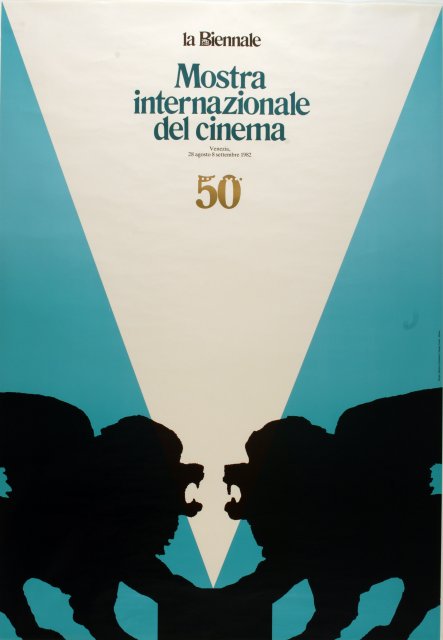
It took Carlo Lizzani, director from 1979 to 1982, to win back international prestige for the Festival, flanking films in competition with significant retrospectives, sections devoted to experimentation ("Officina") and most importantly the new section "Mezzogiorno-Mezzanotte" devoted to spectacular films (Spielberg's Raiders of the Lost Ark and E.T.), remakes (Vertigo, Leave Her to Heaven) or eccentrics, ideated by the great, late critic Enzo Ungari. The formula inaugurated by the Lizzani-Ungari duo was to become a model for festivals throughout the world.
In 1980 the Golden Lion was re-introduced, with an ex aequo award for Louis Malle (Atlantic City) and John Cassavetes (Gloria). Over these years Venice helped establish New German Cinema throughout the world. Filmmakers such as Wim Wenders and Margarethe Von Trotta (the first woman to win the Golden Lion) received the highest recognition at the Festival, Rainer Werner Fassbinder's Berlin Alexanderplatz (1980) was screened in episodes to great acclaim while the controversial Querelle de Brest, presented in '82, a matter of months after the death of the director, divided the jury when it did not win the Golden Lion.
The new course was consolidated in 1983, under the direction of Gian Luigi Rondi. The Festivals were numbered once again, expanded organisation planned for, the sections were made permanent fixtures and greater attention given to the masters of cinema from the past and present. Godard won in '83 with Prénom Carmen, Zanussi in '84 with A Year of the Quiet Sun, Agnes Varda in '85 with Vagabonde, Rohmer in '86 with Le rayon vert. 1984 saw the creation of SIC, the International Critics' Week, run independently by the National Italian Film Critics Union and devoted to debut and second works.
Guglielmo Biraghi, writer and film critic for the Rome daily "Il Messaggero", not to mention director of the Taormina Festival, became the 14th director of the Venice Festival in 1987. Widely travelled and a great linguist, Biraghi (who passed away in 2001) distinguished his mandate (extended for five festivals up until 1991) with a taste for experimentation and discovering unusual filmmakers and types of cinema. Biraghi's first Festival featured a competition line-up of an Indian, Lebanese, Swiss, Norwegian, Korean and Turkish film. In 1989 he presented O Recado das Ilhas by Ruy Duarte de Carvalho, the very first film from the Cape Verde islands ever to be screened at an international festival.
Well organised and with a workable programme (competition, International Critics' Week, tribute to Mankiewicz), appreciated by the experts (Biraghi's nomination was given full backing by the Union of Critics), Biraghi's first Festival assigned an award to festival veteran Louis Malle (Au revoir les enfants), discovered Carlo Mazzacurati in the Critics' Week (Notte italiana), presented important films such as The Untouchables by Brian De Palma, The Dead by John Huston and The House of Games by David Mamet. Considerable hue and cry was caused by the "experiment" Giulia e Giulia, a film by Peter Del Monte produced by the Rai (Italian National Broadcasting) and shot with "high definition" cameras, though it did not receive critical acclaim.
In '88 Biraghi enriched the programme with the sections "Orizzonti", "Notte" and the "Eventi speciali", including the film The Last Temptation by Martin Scorsese. A sentimental-erotic re-interpretation of the final days of Christ, the film stirred up a hornet's nest of polemics in religious circles in both America and Italy, before it was screened in Venice. The film was screened in its entirety in the Palazzo del Cinema, protected as if it were a bunker, and Scorsese outlined the artistic reasons behind his choice at a crowded but orderly press conference. The 1988 Festival saw the discovery of the talent of Pedro Almodovar (Women on the Verge of a Nervous Breakdown) and a comedy of international success A Fish Called Wanda. 1989 on the other hand was the year of Polish director Kieslowski and his Dekalog (Ten Commandments), one of which was shown each day, dividing the interest of both public and press. Together with Kieslowski, the start of the Festival was Nanni Moretti with his much-debated Palombella rossa excluded from the official selection but presented in the International Critics' Week.
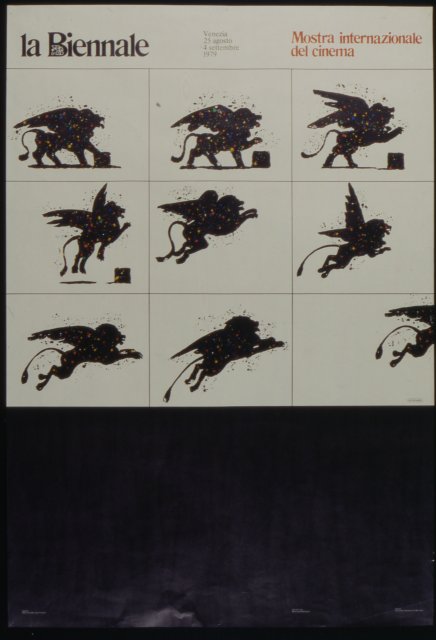
As an effect of the dissent, prize-giving was abolished in '68. From 1969 to 1972 the Festival was non-competitive (the first two were directed by Ernesto G. Laura, and the successive one by Gian Luigi Rondi), and numerous parallel festivals were organised. In 1971 John Ford and Charlie Chaplin the following year, received the Golden Lion for Career Achievement assigned by the Festival. 1971 was also the year in which festival audiences saw a Chinese film screened for the first time: Hung sik laung dje ching.
In 1972 the historic city centre of Venice was used as the venue for the "Giornate del Cinema italiano", in contrast with the Festival held at the Lido. From 1974 to 1976, under the direction of Giacomo Gambetti, an attempt was made at a "different" Festival with "proposals for new films", tributes, retrospectives and conventions, with some screenings still in Venice. 1977 saw an event focused on cinema in Eastern Europe that was integrated into the Biennale project on "cultural dissent". The Festival did not take place in 1978.
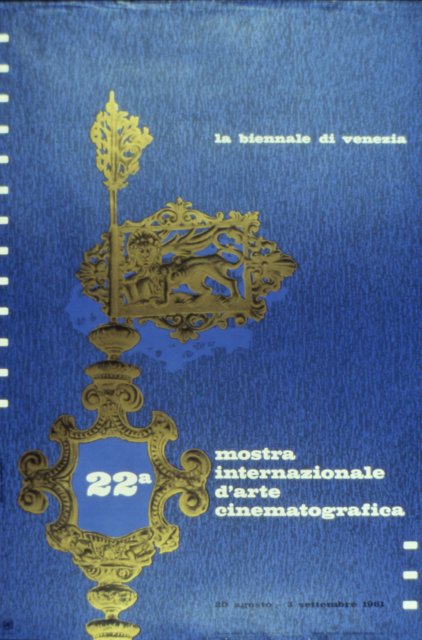
Between 1961 and 1962 the Festival successfully became a showcase for renewal in cinema. The different sections included films from free British cinema, the consecration of the nouvelle vague, and young Italian directors: Pasolini, Bertolucci and the Taviani brothers. The Lions were reliable and not lacking in courage: L'année dernière à Marienbad by Alain Resnais and the Zurlini/Tarkovskij team with Cronaca familiare and Ivan's Childhood.
Then came the era of Luigi Chiarini, the "professor"; from 1963 to 1968 he renewed the spirit and structure of the Venice International Film Festival. A coherent and authoritative director who spent six years organising series of films according to strict aesthetic criteria regarding selection and resisting the social scene, political pressures and the interference of the film industry. Chiarini skilfully placed the work of masters with that of young emerging talents: Godard and Dreyer, Bergman and Penn, Pasolini and Bresson, Kurosawa and Bellocchio, Truffaut and Rossellini, then Carmelo Bene, Cassavetes and Cavani. This continued up until the last Lion, in 1968, that meant an opening onto the neuer deutscher Film with Alexander Kluge's Die Artisten in der Zirkuskuppel: ratlos.
The Festival (along with the Biennale) still had a statute dating back to the fascist era and could not side-step the general political climate. Sixty-eight produced a dramatic fracture with the past. Up until 1980 the Lions were not awarded.
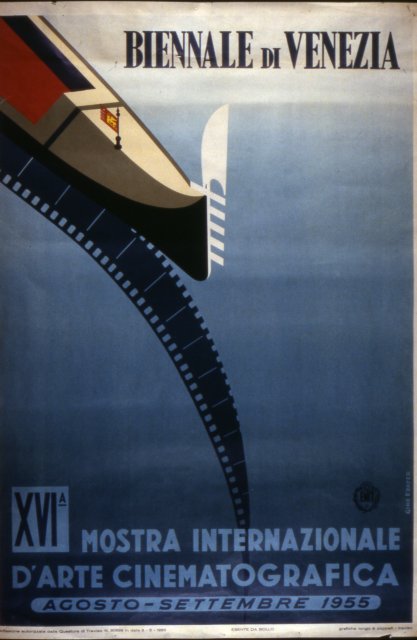
Over the years the Festival has had a noteworthy influence on the history of world cinema. Japanese cinema has become well known in the West mostly thanks to the Golden Lion awarded to Akira Kurosawa's Rashômon in 1951, and successively through the Silver Lions won by Ugetsu Monogatari (1953) and Sanshô Dayû (1954) by Kenji Mizoguchi, not to mention the presence of films such as Biruma no Tategoto (1956) by Kon Ichikawa. It was the same case for Indian film, Golden Lion in 1957 to Satyajit Ray's Aparajito. Eastern European cinema was brought to world attention partly through the Grand Prix awarded to the film Siréna (1947) by Karel Stekly (Czechoslovakia), and later thanks to the presence of emerging filmmakers such as Andrzey Waida (Popiól i diament, 1959).
After the first neo-realist films were shown at the Festival (Paisà by Roberto Rossellini and Il sole sorge ancora by Aldo Vergano in 1946, La terra trema by Luchino Visconti in 1948), a number of foremost Italian figures were recognised as leading talents in the '50s and '60s: Fellini, Antonioni, Rosi, Olmi, Bertolucci, Pasolini, Vancini, De Seta, and Zurlini. The fact that Luchino Visconti did not receive the Golden Lion for Senso in 1954 nor for Rocco e i suoi fratelli in 1960 led to heated debate. Visconti was to be awarded the top prize in 1964 for Vaghe stelle dell'Orsa.
French cinema marked decisive steps in the Festival history, with the presence of directors such as Jean Renoir (The Southerner, 1946), Henri-Georges Clouzot (Manon, 1949), Robert Bresson (Journal d'un curé de campagne, 1951), Marcel Carnè (Theresa Raquin, 1953), Louis Malle (Les amants, 1958), Alain Resnais (L'année dernière à Marienbad, 1961) and Jean-Luc Godard (Vivre sa vie, 1962; La chinoise, 1967).
Great figures in world cinema received awards with significant works: Carl Theodor Dreyer (Ordet, 1955), emergent Andrej Tarkovskj (Ivan's Childhood, Golden Lion in 1962), Luis Buñuel (Belle de jour, 1967), Ingmar Bergman (The Face/The Magician, 1959), who had first come to the Lido in 1948 as an unknown figure with Musik i mörker.
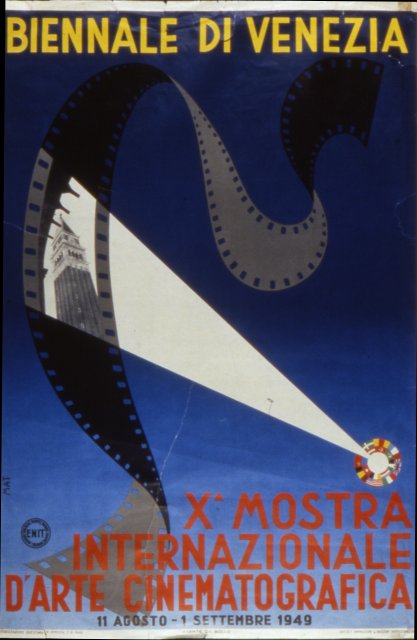
Because of the war, few countries participated in the 1940, 1941 and 1942 Festivals, not taken into consideration later on, with the dominating presence of the members of the Alliance. Following the war pause, the Festival was held again in 1946 with screenings at Cinema San Marco (the Palazzo del Cinema had been requisitioned by the Allies).
In 1946, in view of an agreement with Cannes, which had held its first festival that year in the spring, a simple transitory festival was organised in September. The 1947 Festival was held in the splendid setting of the courtyard of the Ducal Palace, with a record audience of 90,000. It was one of the best festivals and saw the return of the USSR and the new "popular democracies" including Czechoslovakia, which won first prize for Siréna by Karel Stekly. That year the international jury was reinstated to assign the International Grand Prix of Venice. Up until 1948 the director was Elio Zorzi, a Venetian.
Proceedings were transferred permanently back to the Palazzo del Cinema on the Lido in 1949, and the Golden Lion of St. Mark introduced for best film.
During the Fifties the Festival experienced a period of international expansion, with the affirmation of new types of film (Japanese, Indian), and the arrival of leading directors and film stars. The Festival director's chair was occupied by Antonio Petrucci (from 1949 to 1953), Ottavio Croze (1954 and 1955), Floris Ammannati (from 1956 to 1959) and Emilio Lonero in 1960.
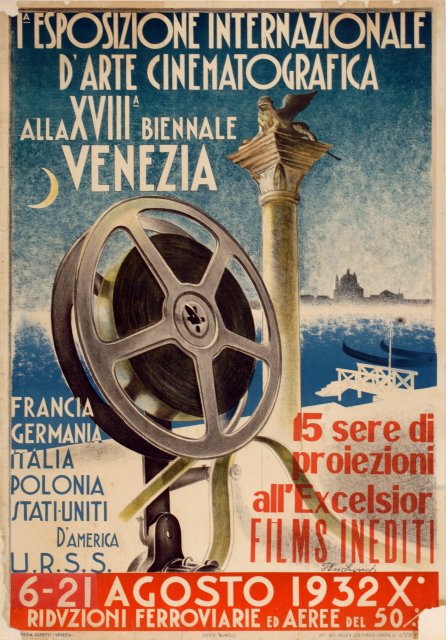
The first "Esposizione d'Arte Cinematografica" came into being in 1932 as part of the 18th Venice Biennale (from 6 July to 21 August 1932) under the auspices of Count Giuseppe Volpi di Misurata, President of the Biennale, the sculptor Antonio Maraini, General Secretary, and Luciano De Feo, General Secretary of the International Institute for Educational Cinema, based in Rome. Luciano De Feo was the very first director-selector.
Italy's highest authorities gave their approval to what would rightly be considered the first international event of its type. The 1932 Festival was held on the terrace of the Hotel Excelsior on the Venice Lido, and while at that stage it was not a competitive event, it included foremost films which became classics in the history of cinema: It Happened One Night by Frank Capra, Grand Hotel by Edmund Goulding, The Champ by King Vidor, Frankenstein by James Whale, Zemlja by Aleksandr Dovzenko, Gli uomini, che mascalzoni! by Mario Camerini and A nous la liberté by René Clair. The list of directors included leading names such as: Raoul Walsh, Ernst Lubitsch, Nikolaj Ekk, Howard Hawks, George Fitzmaurice, Maurice Tourner, and Anatol Litvak. The top stars of the moment appeared on the screen, from Greta Garbo to Clark Gable, Fredric March to Wallace Beery, Norma Shearer to James Cagney, Ronald Colman to Loretta Young, John Barrymore to Joan Crawford, and Vittorio De Sica, attracting over 25 thousand spectators.
The very first film to be shown in the history of the Festival was Rouben Mamoulian's Dr. Jekyll and Mr. Hyde, that was screened at 9:15 p.m. on 6 August 1932. In the report taken from 'La Gazzetta di Venezia' we learn that "the screening of the film" was followed by a grand ball in the Hotel Excelsior and "colourful comings and goings of the most exquisite attire". As there were no official awards, an audience referendum was conducted: best director was the Soviet Nikolaj Ekk for Putjovka v zizn, while the best film was René Clair's A nous la liberté.
The second Festival was held from 1 to 20 August 1934 and for the first time it included a competition. 19 countries took part with over 300 accredited journalists. The "Coppa Mussolini" was introduced for best foreign film and best Italian film; however there was no actual jury.
The awards were assigned by the President of the Biennale, after listening to the opinions of both experts and audiences, and in accordance with the "National Institute for Educational Cinema", a branch of the Society of Nations based in Rome. Other awards were the "Great Gold Medals of the National Fascist Association for Entertainment" to best actor and actress. The prize for best foreign film to Flaherty's Man of Aran, was a confirmation of the taste of the time for auteur documentaries.
As of 1935 the Festival became a yearly event (a clear sign of its international success) under the direction of Ottavio Croze. There was an increase in the number of films and countries participating, and the actors' award was renamed "Coppa Volpi". In 1936 an international jury was nominated for the first time and in 1937 the new Palazzo del Cinema was inaugurated (designed by the architect Luigi Quagliata), after a record construction time in line with the modernist trends of the era; with the exception of the years 1940 to 1948, it has hosted the Festival ever since. The Festival expanded: the number of participating countries increased as did the number of films accepted. 1938 meant the first retrospective, devoted to French cinema from 1891 to 1933. Marlene Dietrich came to the Lido, consecrating the star worship that accompanied the Festival.
As regards foreign films, selected by their respective countries until 1956, French cinema in particular, the '30s saw masterpieces the likes of René Clair's A nous la liberté (1932) and Duvivier's Un carnet de bal (1937), La grande illusion (1937) by Renoir, Quai des brumes (1938) and Le jour se lève (1939) by Marcel Carnè. The Italian award-winning films between 1937 and 1942 were works of propaganda, even if by outstanding directors such as Goffredo Alessandrini and Augusto Genina. The Festival was held three times during the Second World War, from 1940 to 1942 (not counted in the total number of festivals), with screenings temporarily held at the cinema San Marco in Venice, and participation limited to the member countries or sympathisers with the Alliance.